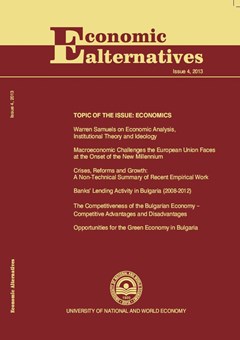Reasoning for the Launch of a Master’s Programme Political Consulting and Lobbying at The University of National and World Economy
Author: Ivka Tsakova
Abstract
The proposed draft of a Master’s Programme entitled, Political Consulting and Lobbying is the result of a three-year scientific research project, Political Sciences at University of National and World Economy (UNWE) – Facing the Business, financed by the university’s Scientific Fund. The main goal of this programme in the field of public affairs management is to provide interdisciplinary knowledge to comprehend and manage the contemporary processes in the new political, economic and socio-cultural situation in a globalised world. The project offers applied knowledge, aiming to develop analytical and institutional entrepreneurship skills. This paper consists of three parts: 1) An overview of the topics of the Master’s programme draft; 2) A brief overview of Master’s programmes in public affairs at five leading universities in Europe and the U.S.; 3) Fundamentals of the Master’s programme and suggested curriculum. The curriculum content of the Master’s programme is interdisciplinary and applied knowledge-oriented. The proposed courses focus on professional activities in the public sphere, which help students act as public affairs practitioners in the field of government relations, parliamentary relations, media relations and public opinion formation; political persuasion, coalition building and networking, interest representation, event management, advocacy campaign, etc. The Master’s programme will provide the graduates with competencies for future careers as political advisors, analysts, mediators, organisers and consultants on political issues at state institutions, civil society organisations, political parties, trade unions, business associations, employers’ organisations, etc., as well as in the EU institutions. The paper draws special attention to political consulting services and lobbying activities, which should be legal (compliant with the law), legitimate (not causing detriment to the public interest), ethical (compliant with definite ethical codes) and public (listed in public records and green papers).

